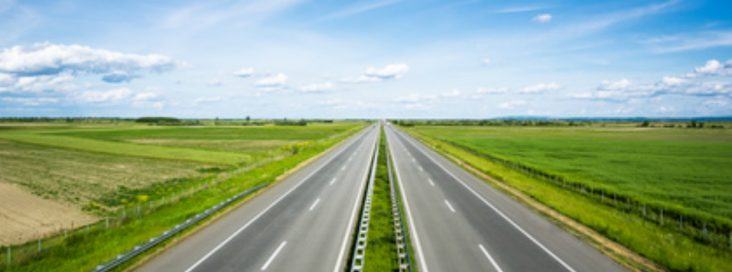House panel approves first part of $200 million highway bond issue, tax on wholesale fuel
by March 10, 2017 5:59 am 1,581 views

After more than two hours of discussion earlier in the day, the House Committee on Public Transportation gave a “do-pass” recommendation to the first of two companion bills that state highway officials say will provide an intermediate funding solution to the state’s growing highway needs.
Rep. Dan Douglas, R-Bentonville, Scott Bennett, director of the Arkansas State Highway and Transportation Department, and Arkansas Good Roads Foundation Chairman Craig Douglass testified before the House panel that Arkansas roads and highways are in such disrepair that mounting costs would reach catastrophic levels if nothing is done.
Douglas, sponsor of House Bills 1726 and 1727, said the state needs a $200 million bond issue to kick-start local, county and highway overlay projects in Arkansas that will become increasingly expensive over time if not upgraded.
“Why don’t we just pay as we go?” Douglas asked rhetorically. “We need the money upfront. We can get the money and get started on these … projects, these local projects and these bridge repairs. Because it we don’t, we will get over the hump where those roads are degrading and we will have more to rebuild, instead of resurfacing and maintaining.”
Douglas also told the committee that his two bills were backed by the governor and came directly from recommendations made by the pro-highway Good Roads Foundation, which in 2015 recommended an increase in the state’s motor fuel taxes of 10 cents per gallon to raise $125.7 million for state highway needs.
According to the Northwest Arkansas lawmaker, 30% percent of the revenue from the bonds will go to upgrade local and county roads, while the remaining 70% will go to the state Highway Department for state highways and to access federal matching dollars.
“What this will do, it will allow the Highway Department to touch every road in the state of Arkansas, all 16,412 miles at least once every 15 years,” Douglas said.
Last summer, Gov. Asa Hutchinson challenged the nonprofit group to come up with a recommendation for a long-term solution for state highway and transportation improvements sans a tax hike.
Bennett explained to House committee that ASHTD annual budget of more than $1 billion is not enough to overlay and maintain state roads and highways. He said Arkansas has one of the largest state highway systems in the nation, but lacks the dedicated revenue to adequately support it. He said Arkansas ranks 12th in the nation in the size of the state highway system, but ranks 43rd in revenue to operate and improve the system.
Near the end of the discussion, Freshman Rep. Carlton Wing, R-North Little Rock, asked Douglas to pull down his bill until lawmakers were able to look at other “non-tax” options to pay for state roads. Rep. Jim Sorvillo, R-Little Rock, also asked the bills’ sponsor if he considered setting aside proceeds from Internet purchases once Arkansas begins collecting sales taxes from online retailers. Amazon Inc. began collecting sales taxes from Arkansas taxpayers on March 1.
Douglas and Bennett told Wing and Sorvillo that the state has studied different options to pay for aging state roads and highways for more than 10 years and needed to moved quickly while there is an opportunity.
“With no disrespect, this is your first term here and we have discussed everything before. We have been discussing various funding options for the past 8-10 years,” Douglas said. “Everything has been looked at, and let’s face it, time is growing nigh and if we wait, the session will be over.”
David Ray, state director of the Arkansas chapter of Americans for Prosperity, said he was not opposed to a plan for paying for state highway needs, just the funding mechanism.
Ray said the state still is paying for short-term highway needs after Gov. Hutchinson signed a five-year highway bill into law during a called special session in May. That act is supposed to raise about $50 million a year over the next five years in order to make the state eligible for $200 million a year in federal matching funds.
“Choosing between good roads and low taxes is a false choice,” Ray told the House panel. “Arkansans can have both, and there are plenty, plenty of reform measures that should be pursued before raising taxes.”
After two hours of debate, the committee advanced HB1726 to the House floor. The House panel still needs to approve HB1727 because the wholesale fuel tax legislation also needs to be enacted in order to provide a way to pay for the general obligation bonds.
